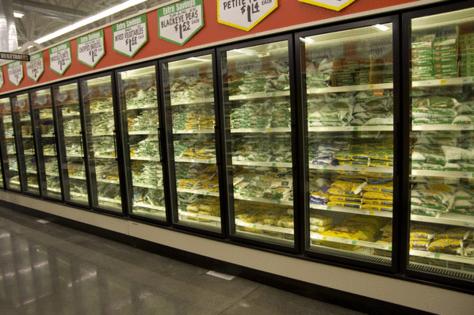On Nutrition: Veggie questions
Published in Nutrition
Donna T. from Bismarck, North Dakota, writes: “When the variety of fresh veggies is limited, I buy frozen. I do, however, like to keep store-purchased canned veggies in my pantry and use them in tight squeezes. I am confused by statements that canned veggies are highly nutritious and comparable to frozen. Comparing nutrition labels does not seem to support this statement. I would so appreciate your input.”
Fresh veggies certainly are best if available…and if they don’t lose precious nutrients by overcooking or languishing too long in the fridge. But don’t feel bad about using frozen and canned varieties, too. They are picked at the peak of ripeness and generally processed right away, which helps maintain nutrients. In fact, the current 2020-2025 Dietary Guidelines for Americans encourage us to eat a variety of vegetables including “fresh, frozen and canned.”
While frozen and canned veggies both have their place, some facts about canned goods may surprise you. For one, they may literally save your life in an emergency when refrigerated food is not available.
What about sodium? According to the Canned Food Alliance (mealtime.org), salt or sodium is not used to preserve canned food. That’s done with heat and cooling. So it’s OK to look for lower sodium versions if needed. Or you can simply drain and rinse beans and other canned vegetables to get rid of 40% or more of the added sodium.
Interestingly, according to the Centers for Disease Control and Prevention, the major sources of sodium in our food are pizza, cold cuts, cured meat, bread, rolls, burgers and sandwiches. Canned food is not even in the top 10.
What about nutrients and other beneficial substances? Some, such as lycopene (the healthful red pigment in tomatoes) and beta carotene (which converts to vitamin A in the body) are actually enhanced in heat-processed canned vegetables.
Vitamin C is another story. It is the least stable of all vitamins and is easily destroyed by heat and exposure to air. However, according to a 2021 review in the journal Antioxidants, new technologies can now preserve the vitamin C content in many canned foods. I have a can of 100% vegetable juice in my cupboard and it contains more vitamin C than a medium orange.
“The general conclusion of this review,” say these authors, “was that while canned foods are often perceived as less nutritious than fresh or frozen products, the research reveals that this is not always true.”
Susan C. from Lynchburg, Virginia, responded to a recent column about feeding picky grandkids: “You said you always want to throw in a vegetable and that you saw a tomato on your counter. I was always told that a tomato is really a fruit? Isn’t that true?”
It is true. Tomatoes are biologically fruits but nutritionally vegetables. In fact, tomatoes were officially classified as vegetables by the United States Supreme Court in 1893. It’s a great trivia question for grandkids.
©2024 MediaNews Group, Inc. Distributed by Tribune Content Agency, LLC.










Comments